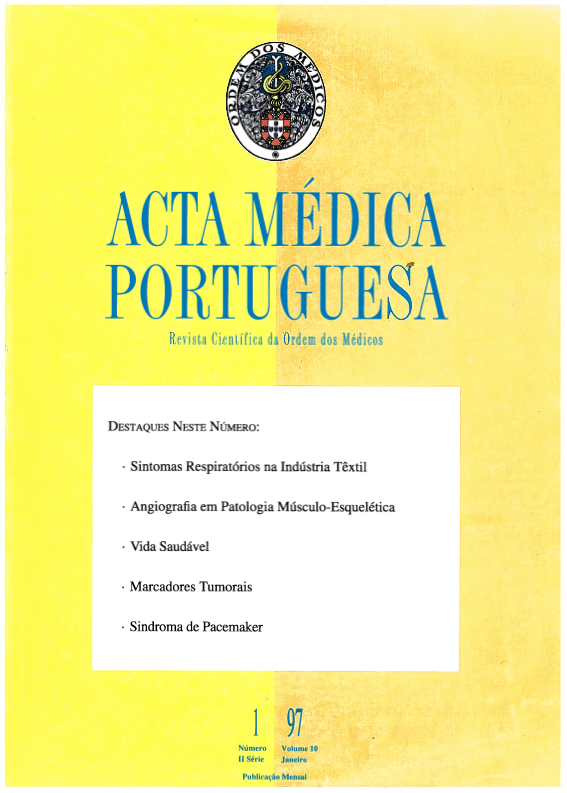Life style and occupational risk factors in bladder carcinoma.
DOI:
https://doi.org/10.20344/amp.2383Abstract
Bladder cancer is a useful model for the study of the relationship between lifestyle, occupation and cancer. In the present hospital based case-control study, performed in the north of Portugal, we evaluated the role of occupational exposure and the effect of different lifestyles as risk factors for bladder cancer. We inquired 98 incident cases of bladder cancer (70 men, 28 women) and 202 hospital controls (100 men, 102 women), selected based on the absence of cancer, urinary or lung diseases, and admitted for orthopedic or acute abdominal surgery. Demographic, and socio-economical variables were recorded. A detailed job history was obtained, and exposure to smoking, alcohol and coffee were assessed. Never married subjects and those with higher school degrees presented lower risk of bladder cancer. Smoking was significantly associated with cancer both in men (OR=2.7) and women (OR=5.7). Alcohol, in contrast, had a protective effect, even after adjusting for different confounders. In women, coffee and alcohol had a significant multiplicative effect. No particular industrial sector was associated with an increased risk of bladder cancer. However, those exposed to any of the substances usually considered as risk factors for bladder cancer presented higher risks (OR=1.7, 95% confidence intervals: 0.9-3.0). This study showed that lifestyles have an important role in the causality of bladder cancer, and that occupational exposure probably has less impact in the occurrence of the disease in the general population.Downloads
Downloads
How to Cite
Issue
Section
License
All the articles published in the AMP are open access and comply with the requirements of funding agencies or academic institutions. The AMP is governed by the terms of the Creative Commons ‘Attribution – Non-Commercial Use - (CC-BY-NC)’ license, regarding the use by third parties.
It is the author’s responsibility to obtain approval for the reproduction of figures, tables, etc. from other publications.
Upon acceptance of an article for publication, the authors will be asked to complete the ICMJE “Copyright Liability and Copyright Sharing Statement “(http://www.actamedicaportuguesa.com/info/AMP-NormasPublicacao.pdf) and the “Declaration of Potential Conflicts of Interest” (http:// www.icmje.org/conflicts-of-interest). An e-mail will be sent to the corresponding author to acknowledge receipt of the manuscript.
After publication, the authors are authorised to make their articles available in repositories of their institutions of origin, as long as they always mention where they were published and according to the Creative Commons license.









